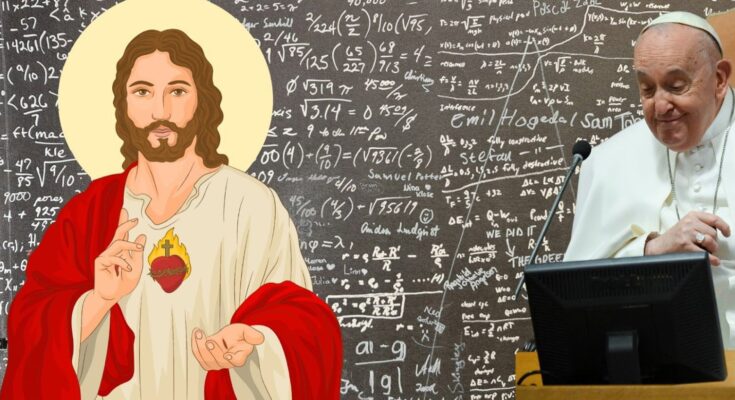It’s human nature to try and explain what we see around us. Many religious teachings came to be as a way to explain the unexplainable.
As the centuries passed and our scientific understanding of the world and the wider universe developed, new scientific theories rendered some of these religious ideas obsolete. There are, though, still some areas where science simply cannot produce an explanation.
The Universe and Its Origins
Let’s start with a big one — the existence of the universe. Scientific understanding of the universe and how it came to be has come a long way from the Biblical notion of God creating existence with a few words.
But there’s still a lot that science doesn’t have an answer for. Scientific opinion has shifted from the universe being infinite to it having a beginning point. If it has a beginning, then something outside of the universe brought it into existence. Perhaps something divine.
A ‘Goldilocks Universe’
The universe is also finely tuned, with conditions being “just right” to allow for the existence of life on Earth. Any sort of change one way or the other, and life could not exist.
The nature of the fundamental physical laws of the cosmos is very precise. Some feel that they’re too precise to have occurred by accident and instead point to some sort of intelligent design.
Consciousness
The scientific definition of the nature of life is extremely limited. We can describe the biological processes in great detail and talk about how the anatomy of the brain permits higher thought, but science cannot really explain consciousness.
And life in the truest, philosophical sense is all about consciousness. The concept of biocentrism takes a more spiritual view of existence that factors in consciousness and much of what religion might describe as the human soul.
Morality
Similarly, science can handily explain basic, almost animalistic responses humans have to the world around us, such as why we as a species might have shared “fight or flight” threat responses.
But beyond this, we as a species also have a shared morality. We have ethics. Similar moral constructs crop up time and again in different cultures and civilizations totally independently of one another. Science cannot explain why the animal species we call humans have this fundamental, shared, complex moral code.
Materialistic Desire
If we again think of humans as animals, we can explain why there is a biological imperative to secure resources necessary for our survival. But what if we remove this survival need?
We still seek out and cling to things for materialistic or sentimental values. Science is far weaker at explaining these phenomena. Sentimentality in particular is something that is far better explained in the realm of spirituality.
The Design of Life
DNA is essentially the code of life. Sequences of nucleotide base pairs describe how to create specific proteins, basically working a lot like computer code for a piece of software.
Science cannot sufficiently explain the chemical evolutionary origins of complex DNA sequencing. If we stick with the software analogy, one explanation could be that it’s a purpose-built design tool for an intelligent designer to use to “program” life in the universe.
The Existence of Miracles
Miracles are present in the world, if we define a miracle as some surprising outcome that defies scientific conventions, laws and theory and yet happens all the same.
Beyond this, there are coincidental occurrences that stretch credulity. Scientific thinking holds that there is an underlying reason for why things happen, but scientific theory can fail to explain how some of these seemingly impossible coincidences or miracles occur. Instead, there might be the divine at play.
Human Connection
There are biological reasons to explain why humans within the same families seek connection. Again, there is a biological imperative to stay connected and make sure your lineage’s genes are passed to the next generation.
But what about connections that aren’t about basic, animalistic survival? Why do we seek meaningful connections with others, a connection that has no survival benefit? Again, this is more about the spiritual meaning of what it is to be human rather than the scientific meaning.
Life After Death
It’s one of the great mysteries that has preoccupied human existence — what happens after we die? It’s a question that permeates philosophy, culture and literature — the world beyond death is Hamlet’s “undiscovered country.”
The limitations of the scientific definition of life mean that science also struggles to tackle what happens after death. The biological processes end, but what of the consciousness? Even science states that everything in existence must be conserved, so our “souls” must go somewhere.
The Meaning of Life
A common theme seems to be that science is very good at explaining the “how” of things but less equipped to tackle questions of “why.” We can explain the origins of life scientifically, but not its purpose.
Some scientific thinking navigates this by removing the idea of purpose entirely — there is no meaning to life, life simply is. Many scientists, however, do not accept this and continue their scientific explanation of the mysteries of the universe, holding a spiritual belief that there is some meaning to it all. A meaning they cannot define.
When Science Meets Faith
Science is, fundamentally, the pursuit of answers. Just because science cannot explain something yet, that doesn’t mean that scientists relent and accept something as inexplicable.
But by the same token, the fact that science cannot explain something can be taken as proof that the explanation lies beyond the realm of science and exists in the spiritual. Furthermore, science can be great at providing explanations for the world around us but falls short of religion when it comes to giving meaning to everything.
